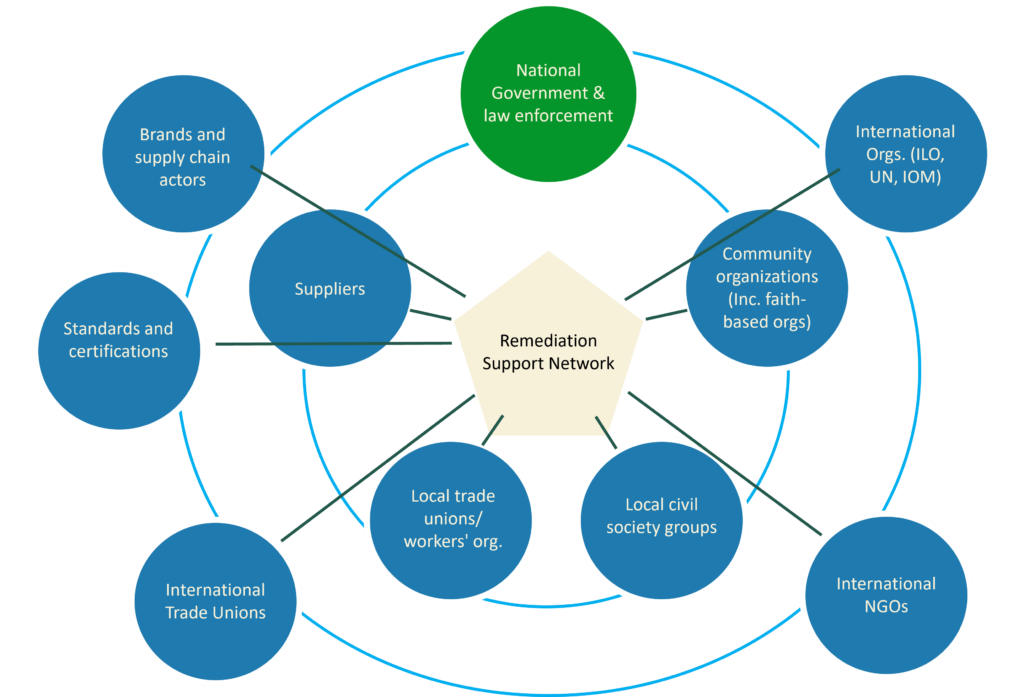Even when employers have effective social compliance systems in place, it is difficult to control for every risk. Responsible employers also need a plan to support workers in accessing remedy (or “remediation”) should a violation occur that they have caused, contributed to, or are directly linked to through their supply chain or activities.
Remediation is “the process of ending situations of forced (or child) labor, and as far as possible correcting the harms experienced by victims.”1 While there are specific guidelines and good practices for remediating different types of violations, generally effective remediation should:
- Restore the affected individual’s rights, including removing them from the harmful situation without causing further harm or placing them in another vulnerable situation;
- Compensate the affected individual(s) for monetary loss or impacts;
- Seek to achieve reconciliation (establishment of normal relations) between parties;
- Incorporate means of preventing further abuses;
- Be flexible and responsive to the needs and wishes of the affected parties and be based in realities of the local context.
Remediation is generally not achieved by the actions of a single company or organization, but by building on the strengths and capacities of partner organizations and national authorities.
Actors Involved in a Remediation Support Network

Sustentar works with companies, government entities, and civil society organizations to help build connections between them that will support effective access to remediation for workers in Mexico’s tomato and chile pepper industries and work to address root causes of labor risks by creating a remediation support network.
In our work with companies, Sustentar provides training and practical guidance to develop and implement mature social compliance systems. This includes plans and processes for remediating labor compliance gaps and implementing corrective actions and preventive measures. Contact us if you are interested in our customized programs for employers.
- Note: Graphic and some text adapted from Ergon Associates. “Forced Labour Remediation Working Paper.” ISEAL Alliance, February 2019. https://www.isealalliance.org/sites/default/files/resource/2019-02/Forced_Labour_Remediation_Working_Paper_0.pdf. ↩︎